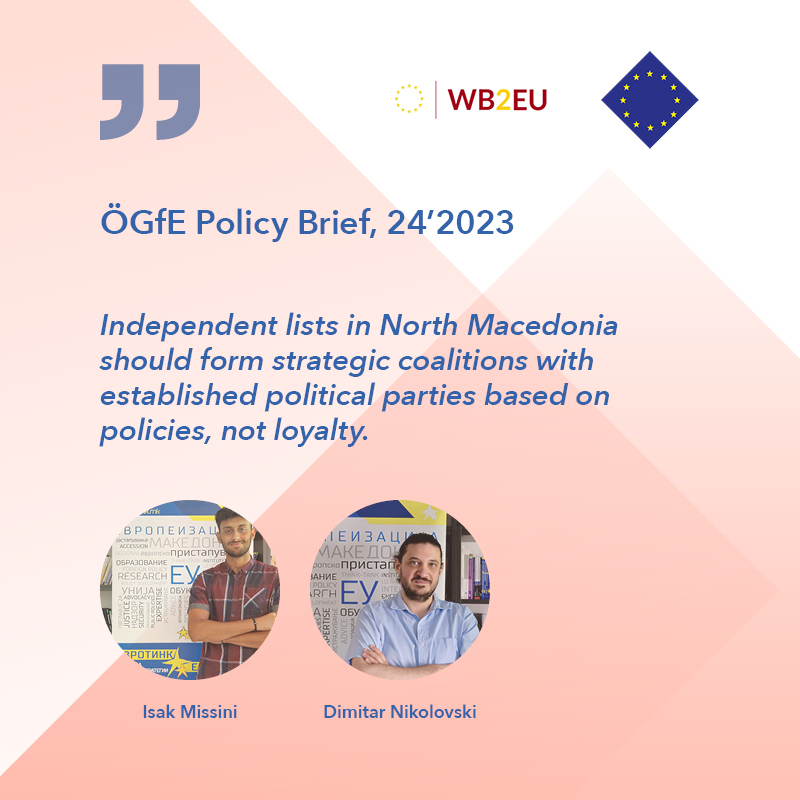Tackling the local beyond partisan politics. Can independent lists in North Macedonia boost local democracy? Isak Missini & Dimitar Nikolovski, ÖGfE Policy Brief, 24’2023
At the local elections of 2021 in North Macedonia, eight independent groups with green politics ran for municipal councillors. The Policy Brief analyses the work of “Green Humane City” in the City of Skopje and “Chance for Centar” in the Skopje municipality of Centar. The relative successes and failures of the two groups point to a public interest in solutions beyond partisan politics but also to certain shortcomings in terms of cooperation, transparency, and strategic communications.
Policy Recommendations
- Form strategic coalitions with established political parties based on policies, not loyalty.
- Wider cooperation with different actors and on various topics is necessary. The “Green Humane City” and “Chance for Centar” movements should continue to deliver on their campaign promises, especially through increased collaboration with other political parties (not just those present in municipal councils).
- “Chance for Centar” should follow “Green Humane City’s” good practise of conducting public opinion research to gather information first-hand about the increased communication between the Ministry of Information Society and Administration and reluctant institutions in order to convince them of the benefits of being a part of the digital system and offer digital services.
In a clientelistic, overall particised society such as North Macedonia, outside “players” are difficult to influence politics since they do not have access to executive power (thus, no informal bargaining power) and must rely on values and adequate identification of popular interests.
Isak Missini & Dimitar Nikolovski Tweet



